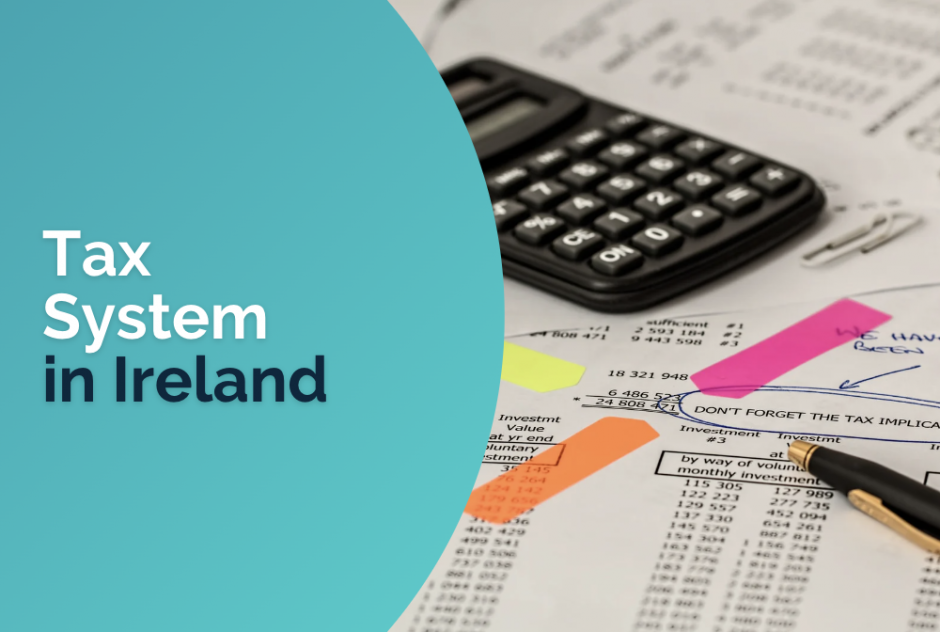 Menu
Menu
 Menu
Menu
Many pharmacists, nurses, and GPs looking for work in Ireland are faced with the same questions; one of these being, "How does the tax system works in Ireland?".
Non-Irish nationals and Irish individuals who do not have an Irish tax/social security number will need to register for a Personal Public Service (PPS) number. The PPS number is an individual’s identification number for tax and social security purposes. An individual cannot file an Irish income tax return without a PPS number.
Your Personal Public Service (PPS) number is your key to accessing public services in Ireland, such as healthcare and education. You’ll also need to provide it to your employer so you can be paid and for tax purposes. You cannot apply for a PPS number from outside of Ireland, but it should be one of the first things you do on arrival.
To apply, you’ll need to visit your local PPS Number Registration Centre.

The next step when you receive your PPS number is to register on the Revenue online platform. When you have done so, your new employer will receive a tax credit certificate which showcases what tax credits can be deducted from your tax bill. For those who are self-employed or have additional income to declare, you will have to file a self-assessment tax return.
If you are working in Ireland, you will be in the PAYE (Pay as you earn) system.
Every time your salary is paid, your employer deducts Income Tax (IT), Pay Related Social Insurance (PRSI) and Universal Social Charge (USC) and pays the amount deducted to Revenue. PAYE ensures that the yearly amounts you have to pay are collected evenly on each pay day over the course of the tax year
When you start your first job, you should tell Revenue as soon as possible, or you may have to pay emergency tax. Revenue will send a Revenue payroll notification (RPN) to your new employer. The RPN will tell your employer how much Income Tax (IT) and Universal Social Charge (USC) to deduct from your pay.
When you start working for the first time, you must register yourself as soon as possible. This is to avoid paying emergency tax. You must do this even if it is a part-time or temporary job.
When you receive your myAccount password, you will be able to register your new job. To register, click on the ‘Update job or pension details’ link in ‘PAYE Services’ in myAccount. Revenue will work out the tax credits that you can claim.
You will normally start to pay tax from your first pay-day. The amount of tax you pay depends on your level of pay and the amount of your tax credits.
For the standard level of income tax, you will be paying a tax rate of 20% on your income of up to EUR40,000 for a single person. Any income over this threshold will then be taxed at a rate of 40%. The thresholds change depending on whether the person is in a marriage. There is also a higher threshold for single-parent households.
The tax return for a particular tax year must be submitted no later than 31 October of the following year.

The standard VAT rate is 23%.
For some goods and services, reduced VAT rates are 13.5% and 9%.
If you are leaving your home country to live and work in another EU country, it is important that you change your tax address with the competent authority in your home country to the new address abroad. Otherwise, you will continue to be considered a resident of your home country and may be subject to double taxation. This means your income can be taxed in both countries.
Fortunately, however, most countries have open double taxation agreements as an external link. These agreements generally spare you from double taxation. Find tax treaties by country here.
Be sure to check with the tax authorities which proof and documents you need to submit.
 I'm Lara, the EU recruiter here at Clarity. I'm here to find your new position as a nurse, pharmacist or GP and help you as best I can with relocating to Ireland. If you're thinking about moving, why not get in touch? Use the button below to contact me.
I'm Lara, the EU recruiter here at Clarity. I'm here to find your new position as a nurse, pharmacist or GP and help you as best I can with relocating to Ireland. If you're thinking about moving, why not get in touch? Use the button below to contact me.
